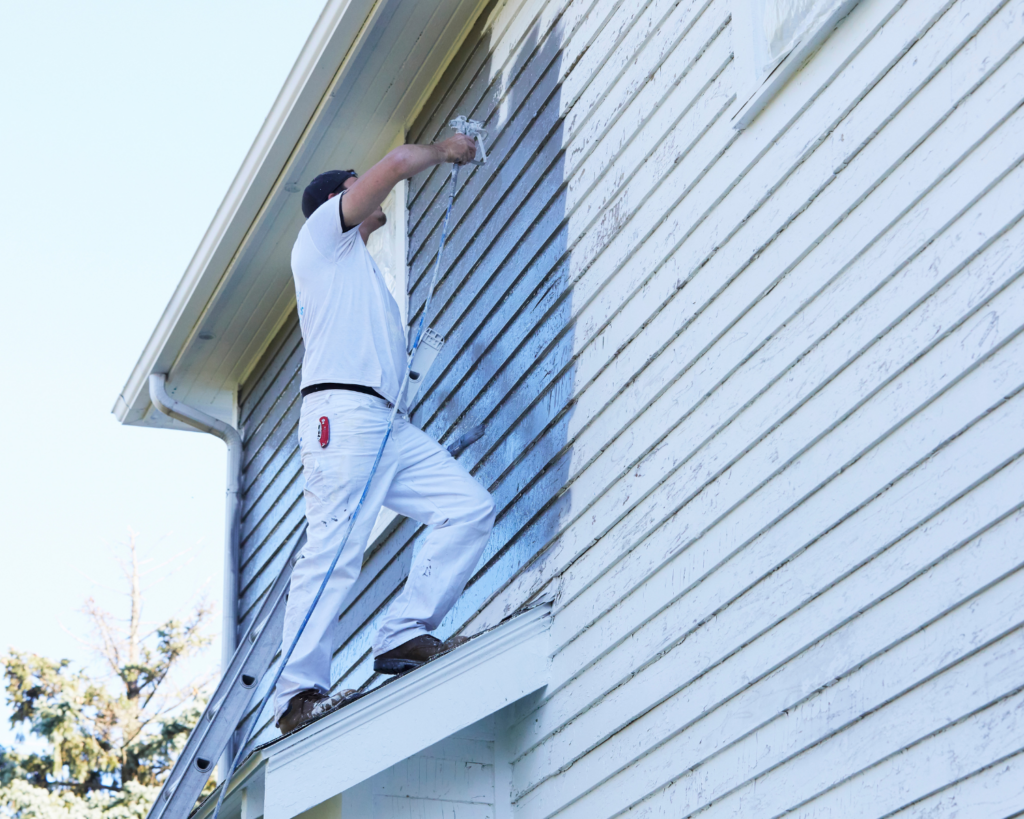Is it better to brush or spray exterior paint? It’s a common challenge for many homeowners in Rochester Hills, MI, and the surrounding areas. Each method has its fans and its fair share of pros and cons, depending on your specific situation.
Maybe you’re worried about the cost, the time it might take, or just how tricky it can be to get that professional look. No worries—I’ve got you covered! Let’s walk through the ins and outs of both brushing and spraying so you can pick the right approach for your exterior house paining project.
Overview of Brushing and Spraying Techniques
When deciding “Is it better to brush or spray exterior paint?”, consider the size of your project, the details involved, and how comfortable you are with each method.
Brushing is the traditional method, where you use a paintbrush to apply the paint in smooth, even strokes. This technique is great for getting into all the nooks and crannies, making it perfect for detailed work or areas with lots of trim. However, brushing can be quite time-consuming and might require more effort, especially for large surfaces.
On the other hand, spraying involves using a paint sprayer to apply the paint in a fine mist. This method is much faster and can cover large areas quickly, making it ideal for big projects. Spraying provides a smooth, even finish and is excellent for reaching high or hard-to-reach places. However, it can be a bit tricky to master, and you need to be careful with overspray, which can make a mess if you’re not careful.
Is It Better To Brush Or Spray Exterior Paint?
Both methods have their merits, and the best choice depends on your specific needs and project details. Let’s explore the advantages of both methods to help you make an informed decision.
Advantages of Brushing
Brushing offers several distinct advantages that can make it the better choice for many projects. Let’s explore why brushing might be the ideal option for your next exterior painting job.
- Precision and Control: Brushing offers a high level of precision and control, making it perfect for detailed work like window frames, trims, and other intricate areas. With a brush, you can easily navigate around corners and edges, ensuring that every small section is covered accurately.
- Thorough Coverage: The bristles of a brush can reach into the nooks and crannies that a sprayer might miss, providing thorough coverage, especially on textured surfaces like stucco or wood siding. When painting surfaces with lots of texture or detail, a brush ensures that paint gets into every crevice and groove. This thoroughness helps to create a uniform appearance and ensures that the entire surface is protected from the elements.
- Better Adhesion: By working the paint into the surface, brushing can create a stronger bond, leading to better durability, particularly in climates with extreme weather conditions. When you use a brush, you can apply more pressure, which helps the paint to penetrate the surface more deeply. This stronger adhesion means that the paint is less likely to peel or chip over time, providing a longer-lasting finish that stands up better to rain, wind, and sun.
But brushing isn’t perfect for every scenario. It’s generally more time-consuming than spraying, and it can be physically demanding, especially in large areas or multi-story homes.
Advantages of Spraying
When it comes to painting the exterior of your house, you might wonder, “Is it better to brush or spray exterior paint?” While brushing has its advantages, spraying can be a game-changer for many homeowners. Let’s dive into why spraying might be the better choice for your next painting project.
- Speed and Efficiency: Spraying allows you to cover large areas quickly, making it highly efficient for big projects. If you have a large exterior surface to paint, such as the side of a house, using a sprayer can save you a significant amount of time compared to brushing.
- Smooth, Uniform Finish: The fine mist from a sprayer provides a smooth, even coat that’s hard to achieve with a brush. This can give your exterior walls a professional, flawless look, enhancing the overall appearance of your home.
- Less Physical Strain: Using a sprayer involves less physical effort, reducing strain on your arms and back. This makes the job easier to complete quickly and with less fatigue, allowing you to achieve great results without the physical toll that brushing can take.
However, spraying has its downsides too. It can be messy with a lot of overspray, which means more prep work to protect areas you don’t want to be painted. Also, it might require renting equipment and some practice to get the technique down.
Considerations for Choosing a Method
Several factors can help determine the best method between brushing vs spraying paint for your project:
- Type and Condition of the Exterior Surface: If your house has a lot of intricate details, textured surfaces, or areas that need careful attention, brushing might be the better option. Brushing allows for precision and control, which is essential for those tricky spots. On the other hand, if you’re dealing with large, flat surfaces in good condition, spraying can save you a lot of time and provide a smooth, even finish.
- Weather Conditions and Temperature: Brushing can be more forgiving in windy conditions since there’s no risk of paint drifting away like with spraying. However, spraying can be advantageous in mild, dry weather where quick drying is beneficial.
- Overall Project Size and Scope: Large projects can be more manageable with a sprayer due to its speed and efficiency. If you’re painting a big exterior area, spraying can significantly cut down on the time required.
- Environmental Aspects: Spraying can lead to overspray, which requires extensive preparation to protect surrounding areas. If you’re eco-conscious, brushing might be preferable since it’s more contained and reduces waste.
So, when asking, “Is it better to brush or spray exterior paint?” consider these factors to make the best decision for your needs.
Final Thoughts
Is it better to brush or spray exterior paint? Well, it really depends on your specific needs. If you value precision and are working on a detailed or smaller project, brushing could be your best bet. On the other hand, if you’re looking to cover a large area swiftly and can handle the prep work, spraying might be the way to go.
Many homeowners in Birmingham, Troy, MI, and the surrounding areas find that combining brushing and spraying techniques yields the perfect balance. You can tackle the delicate spots with a brush for that personal touch while using a sprayer for the bulk of the work to speed things along.
Now, if the thought of handling paintbrushes or setting up a spray rig sounds like more trouble than it’s worth, don’t sweat it! We specialize in delivering quality results and hassle-free house painting services. Call us at 248-923-4406 for a FREE estimate today!





